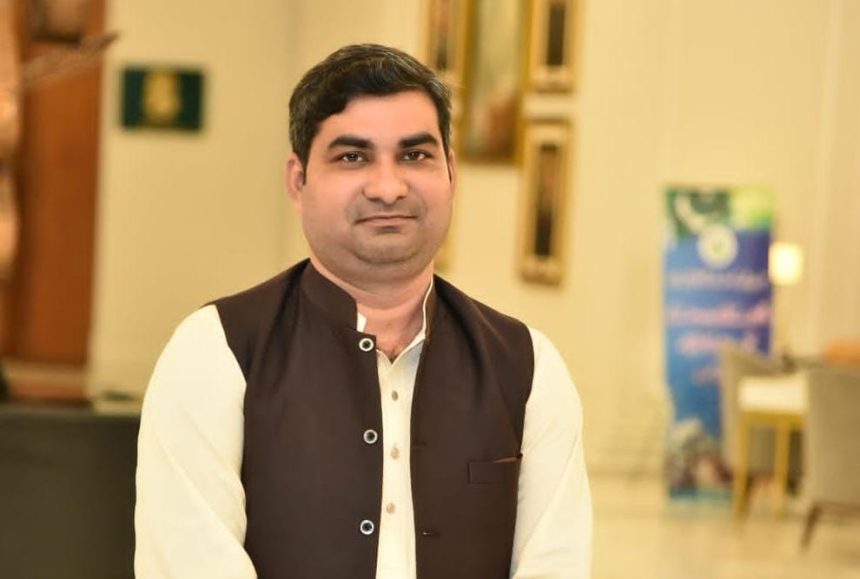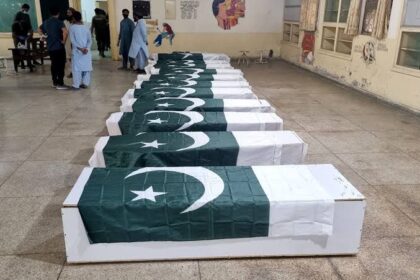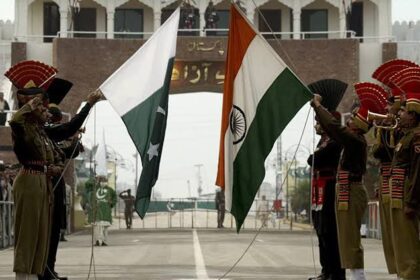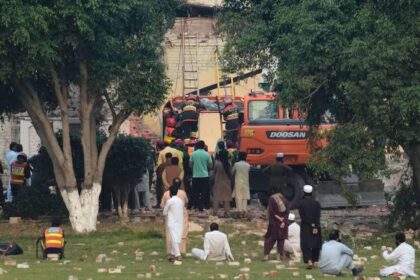Rights defender Asif Sardar on Wednesday made a strong and emotional appeal to the government of Pakistan, presenting a detailed plan to improve the situation of religious minorities in the country.
With an aim to create a Pakistan where everyone, regardless of faith, can live with dignity and access necessary resources, Sardar laid out a five-point agenda, saying that it was as practical as it was urgent. Talking to Jarida Today, he said his proposal was not a simple list, but rather a detailed and practical guide to make Pakistan a more just and inclusive society.
His first proposal was related to the creation of special courts dedicated for handling cases involving minorities. “I believe minorities in Pakistan face certain barriers, especially when it comes to accessing justice. That raises the need for the special courts, which can ensure that minorities get a fair shot at justice,” he said, adding that such cases needed to be treated with the urgency and sensitivity they deserved. “It is simply a matter of fairness and justice.”
Next, Sardar pointed to the absence of a dedicated one-window operations at NADRA centers across the country, saying that government services needed to be made more accessible and user-friendly for all Pakistanis, particularly for the minority communities. “For minority communities, getting important documents like identity cards, passports, and birth certificates can be a daunting task. I am not saying there is discrimination, but lack of awareness about the documentation process is certainly there, which can be rectified with this small addition,” he said. “I believe it will send a strong positive message to the minority communities.”
The third point was about giving an overhaul to the education system to remove any content that spreads hate or promotes discrimination. He said that youth were the future leaders of our society, so while shaping their minds, we need to instill in them virtues like tolerance, inclusivity and respect for all individuals. “Just imagine how much positivity we can bring about with a curriculum that promotes diversity and understanding, and encourages critical thinking. There is a dire need for a curriculum that helps prepare our children to live in a society where everyone is treated with dignity and respect, regardless of their faith or ethnicity,” he said, adding that the current system had failed to promote such values.
He then moved on to highlight the issue of vacant properties, saying that they should be handed over to the relevant people within the minority communities. He said it was important to take a fair and equitable approach to allocating such properties. “Through this we can provide them with the stability and security they need to thrive,” he said, adding that it would be a step towards economic justice.
Lastly, he urged the government to regulate religious sermons, admitting that it was the most sensitive and challenging of all his proposals. Giving his arguments, he said that sermons should be monitored to ensure they didn’t spread hate or incite violence. “I am not calling for any type of restrictions or curbs on freedom of speech or expression. Since religious leaders have a significant influence over their followers, there is a need to ensure that they use their platforms responsibly to promote positive values and messages,” he explained.
Sardar said all his proposals aimed at creating an environment in which people could working together to promote peace, tolerance and understanding in society. He said the proposals, if implemented, would not result in provision of immediate relief to members of the minority communities but would also make the country more peaceful and inclusive.
It may be mentioned here that Asif Sardar is the director of the Kawish Resource Center in Lahore, and has been a vocal advocate for the rights of marginalized communities in Pakistan. His work on getting the silent voices heard has earned him the prestigious Peace Award from the National Peace Community. His latest five-point agenda shows his deep commitment to create a society where every human being can live with dignity and respect. Despite the challenges he faces, he remains committed to his mission.












